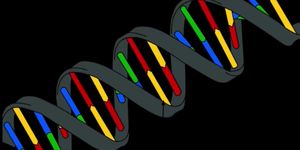Researchers at University of Technology Sydney warn that the protein supplement, L-norvaline, could damage brain cells. The study was published in Toxicology in Vitro describes how at low concentrations, L-norvaline induces unhealthy cells in the brain. The was the first reporting to investigate the toxicity of L-norvaline in human cells with a specific focus on the health of brain cells.
L-norvaline is a widely used bodybuilding supplement and promoted as a compound that can boost workouts and aid recovery. Naturally, our bodies use amino acids from our diet to make new proteins—however, L-norvaline is one of the amino acids that are not usually used by our physiological system to produce proteins.
Learn more about bodybuilding supplements:
"Protein requirements are higher in very active individuals and proteins are considered to improve and increase performance. The demand for amino acids in supplements has expanded but in addition to the normal protein-building amino acids other 'non-protein' amino acids are being taken," explains lead author, Kate Samardzic, a PhD candidate at UTS School of Life Sciences. "Some non-protein amino acids are toxic because they can mimic protein amino acids and deceive the body into making faulty proteins; a property used by some plants to kill predators.
Although it has been known that L-norvaline helps to produce more energy, it is now believed to damage the machinery used to generate that energy—producing long-term consequences for anyone who takes the supplement.
“Some plants can even release non-protein amino acids into the soil to kill other plants so that they can have access to all the nutrients. Chemical warfare among plants is a wellknown phenomenon. Since there was evidence that L-norvaline has an antimicrobial and herbicidal activity we examined its toxicity in human cells,” said Samardzic
Source: Science Daily
-
MAY 07, 2024Is It Anti-RNP or Anti-Sm/RNP?
- See More
-
APR 30, 2024Immuno-Oncology Virtual Event Series 2024
-
MAY 07, 20243rd International Biosecurity Virtual Symposium
-
JUN 06, 2024The Future of Scientific Conferencing
- See More


















































